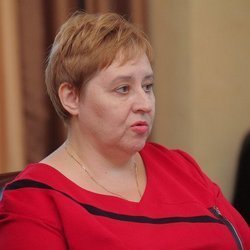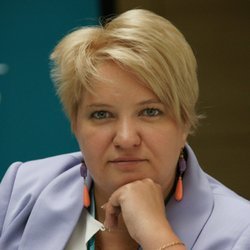‘Our moneybags and oligarchs feel much safer in Switzerland’
Why did Russians prefer “pocket Europe” over Cyprus for capital transfer?
During the pandemic in 2020, Russians transferred much less money than in 2019 — $40,1 billion. Tatarstan residents take the lead in capital outflow in the Volga region — $194,8 million. At the same time, money is transferred mainly to Switzerland, specialists explain the choice simply — it has become unprofitable to hold money in Cyprus and in other offshore countries. Read the reasons in Realnoe Vremya’s report.
Net outflow rises by a quarter and more
Last year, Russians (natural persons) transferred US$40,1 billion from Russia, which is 3,8% more than in 2019 ($41,7bn). Transfers to CIS countries reduced by 14,4%, or $1,9bn.
However, natural persons’ receipts in Russia reduced too. In 2020, $23,4 billion were transferred in our country, which is $1,7bn less than in 2019.
Talking about the total result for all transfers of natural persons, traditionally, more money was transferred abroad than was received, by $16,7bn. Moreover, 26,2% more transfers (both outflow and inflow) were made to remote countries than a year earlier or, more precisely, $9,1bn in 2020 versus $7,2bn in 2019. Net outflow in CIS countries reduced by 18,8%, or to $7,6bn ($9,4bn in 2019).
What money was transferred for
Money transfers of physical persons who are residents weren’t in favour of Russia. In 2020, the country received $21,2bn, while $12,1bn more was transferred from the country, $33,2bn. Such a tendency has been seen in the last five years.
People’s own (or their relatives’) money account for the biggest amount in these transfers. In 2020, $16bn were transferred, while $6bn were received.
In 2020, the trend of money flow regarding payment for services changed — the pandemic made its amendments. Money transferred from Russia to pay for services has reduced from $2,1bn in 2019 to $1,6bn for the first time in five years. Moreover, transfers to the country kept growing by 12,9% compared to 2019 and reached $780m in 2020.
Non-refundable transfers decreased by 4,8% to $2,9 billion, while transfers from the country rose by 4,7% (to $3,6bn).
Meanwhile, salaries that were received in Russia increased by 7,4% from $2,091bn in 2019 to $2,246bn updating the record high in the last five years.
Transfers of electronic money sent to Russia updated the data in the last five years too, $2,1bn in 2020. Moreover, the amount of money transferred abroad was bigger anyway — $2,5bn.
The biggest sum in the last five years equal to $331m was transferred from Russian in Forex. The sum is 54,7% bigger than the previous year ($214m in 2019).
Money is sent to Uzbekistan and returns from Kazakhstan
The biggest quantity of money sent abroad is in Switzerland. Moreover, 35,8% more money was sent there in 2020 ($7,9bn) than in 2019 ($5,8bn).
As Natalya Milchakova, vice head of Alpari Information and Analytic Agency, explained, one of the reasons why capital flows from Russia to Switzerland is that now it is unprofitable to hold assets in Cyprus and in other offshore countries because of changes in Russia’s international agreements with these countries (dividends and bond interest have been imposed a tax, including dividends and interest that used to be offshored to Cyprus since 2020):

The top 3 countries where natural persons transfer their money also includes the USA ($2,3bn in 2020) and the United Kingdom ($2,7bn), where the number of transfers grew by 22,6% in 2020 (from $2,2bn in 2019).
Uzbekistan ($4,4bn), Tajikistan ($1,4bn) and Kyrgyzstan ($1,7bn) are leaders among CIS countries receiving transfers. During the pandemic last year, 12,4% less money was sent to Kyrgyzstan, while money flow to Tajikistan fell a third, from $2,6bn in 2019.
Anastasia Maslennikova, a board member, director of development of Pochta Bank’s e-business, also confirms that transfers abroad (at Pochta Bank) had indeed rapidly increased in the last few years. So in 2019 and 2020, they more than doubled. Transfers to CIS countries have also doubled in the last two years. Moreover, 17% more money was sent to Uzbekistan than to other CIS countries.

Money is transferred to Russia from same Switzerland, but in a smaller quantity. In 2020, 12,4% more ($5,5bn) was transferred to our country than a year earlier ($4,9bn). America became the second country in terms of the amount of money sent by natural persons to Russia, it transferred $2,1bn, which is anyway 27,7% less than the number in 2019. A bit more than $3bn were transferred from the United Kingdom and Latvia altogether.
Among former USSR countries, money is mainly sent from Kazakhstan — $1,4bn. $378m was transferred from Armenia, $316m from Kyrgyzstan, $312m from Uzbekistan.
Tatarstan in the lead in the Volga region in money transfer
In 2020, natural persons transferred a record-high sum to our republic in the last five years — $84,9m. However, so much money was sent from the republic ($194,8m) that the republic ranked first in the Volga Federal District in money outflow. Tatarstan has held the leadership in the last four years.
Samara Oblast received the biggest number of transfers from Russia among Volga regions ($229,7m). But money inflow ($155,9m) is also the biggest in the federal district.
Nizhny Novgorod Oblast ($255,2m) is third in turnover. $133,7m were sent from the region, while $121,5m were received.